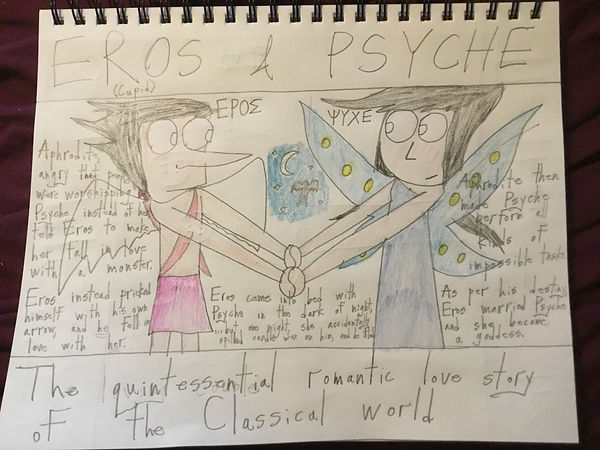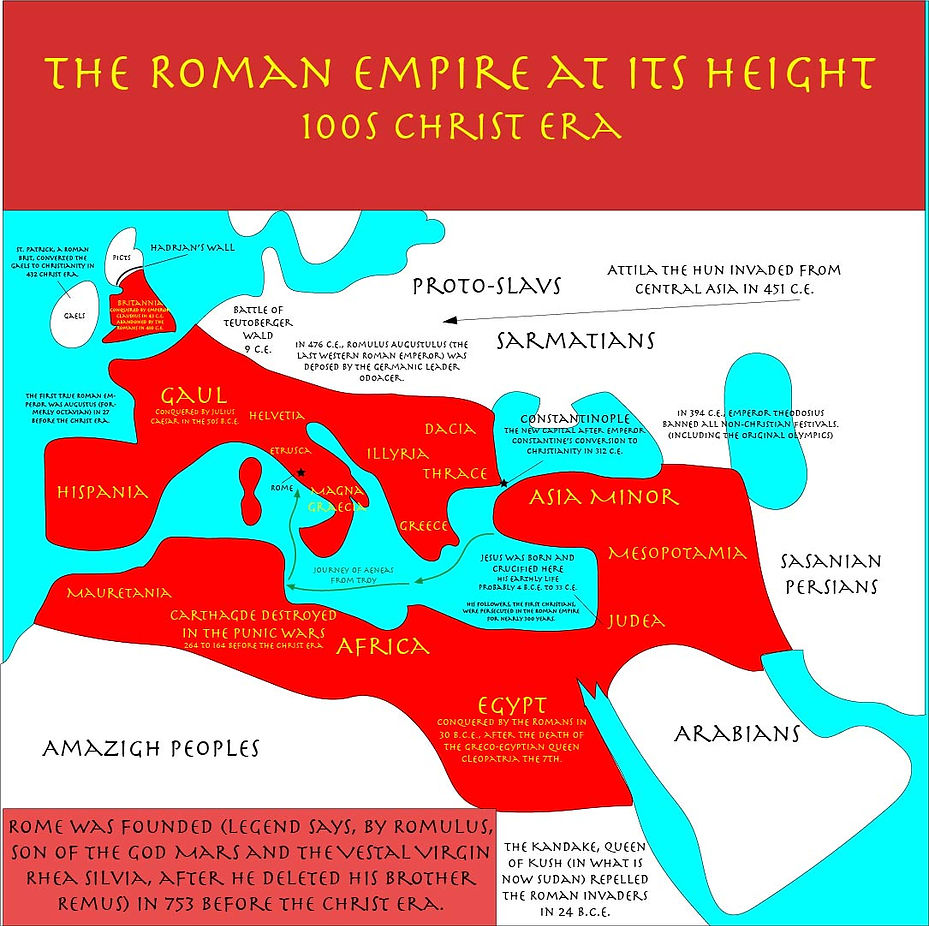top of page

Mythology Worlds
GREECE and ROME
The Classical Realm

Primary Sources on Greek mythology
Homer's Iliad and Odyssey
(No relation to the cartoon character)
Hesiod's Theogony and Works and Days
Creation and Origins




Hesiod was an incel


Hesiod was a boomer
Greek Gods and their stories
Insulting the Gods is a major no-no in Greek mythology.










Aphrodite was derived from the Mesopotamian goddess Ishtar.







One time, Hephaestus attempted to throw himself at Athena...but Athena shooed him away.
Some of Hephaestus's "baby grease" got onto Athena's leg; and for some reason, this led to the birth of a child:
Erichthonius, a lad with the tail of a serpent instead of legs
Erichthonius grew up to be king of Athens.
The Many Lovers of Zeus
His lovers are in bold
His children by them are in italics
Metis (One of the Oceanids,
or basically a mermaid)
Athena (goddess of wisdom)
Themis (Titan of fixed order)
The Moirai/Fates (governors or destiny)
Hera (Queen of Mount Olympus; wife of Zeus)
Ares (god of war)
Hephaestus (god of the forge)
Hebe (goddess of youth)
Eilethyia (goddess of childbirth)
Leto (Titan of motherhood)
Apollo (sun god of the arts)
Artemis (moon goddess of the hunt)
Maia (one of the Pleiades Titans)
Hermes (messenger of the gods)
Semele (princess of Thebes)
Dionysus (god of wine and revelry)
Demeter (goddess of the harvest)
Persephone (goddess of springtime, wife of Hades)
Eurynome (dancing creator goddess)
The Graces (attendants of Aphrodite)
Mnemosyne (Titan of memory)
The Muses (goddesses of the arts)
Thetis (basically a mermaid)
Passed off to King Peleus of Thessaly.
By him, she became the mother of Achilles (of heel fame)
Io (princess of Argos)
Epaphos (king of the Maghreb)
Europa (Princess of Phoenicia)
Minos (King of Crete, manager of the Minotaur)
Rhadamanthus (one of the judges of Hades)
Danae (princess of Argos)
Perseus (slayer of Medusa)
Alkmene (Queen of Tiryns)
Herakles (Hercules, if you use the Roman name)
Leda (princess of Sparta)
Castor and Polydeuces (the Dioskuroi twins)
Clytemnestra (Queen of Argos in Homer's Iliad)
Helen of Troy (the face that launched a thousand ships)
Antiope (Princess of Thebes)
Zetheus and Amphion (builders of the walls of Troy)
Ganymede (a handsome young Trojan lad)
He is Zeus's only same-sex lover.
Gods are immune to the ravages of inbreeding.
That's why their inbred children are all good-looking instead of sickly freaks.
This website does not condone Sweet Home Alabama among mortals.
Disguises used by Zeus for his liaisons
A Cuckoo bird (Hera)
A Swan (Leda)
A White bull (Europa)
A Golden shower (Danae)
An Eagle (Ganymede)
A Satyr (Antiope)
Alkmene's husband (Alkmene)
An Ant (Eurymedousa)
Artemis (Callisto)
The Greek gods never died out
There is a growing movement of literal Greek god worshippers in the here and now.
This movement is called Hellenism.
When Zeus was an infant, a golden dog made by Hephaestus was sent to protect him.
Zeus was still a baby at the time, and Hephaestus wasn't born until after the Titanomachy!
TO address this plot hole, my personal headcanon is that Hephaestus can travel through time and that he had sent the golden dog back in time to when Zeus was a baby.
Age of Heroes
Age of Heroes
Both mighty and tragic




















Greek Mythology Creatures



How did Medusa come to be?
It depends on who you ask:
In the earliest versions, Medusa is Medusa from the start.
In the version from Hesiod (who, remember, was an incel boomer), Medusa used to be human and seduced Poseidon in Athena's temple, and that's how she turned into...well, Medusa.
In the version presented by Ovid (who just wanted to slander the Greek gods to make the ROman gods look perfect), Poseidon "captured" Medusa, then Athena turned her into...Medusa out of spite.
According to some people, Athena turned Medusa into...Medusa to protect her from the eyes of men.
If that's true, then why did Athena help Perseus slay Medusa, then put the head of Medusa on her shield?











Roman Myths
Primary Sources on Roman Mythology
Ovid's Metamorphoses
Virgil's Aeneid, a Roman edition of Homer's Odyssey
Although the Romans had their own mythology, they looked to Greek mythology for inspiration.
The greatest of the Roman gods, in particular, were associated with the Olympian gods of Greece.
That's why in the modern world, Roman myths and gods are all too often confused with the Greek ones.
The Romans also revered imported deities such as the Egyptian goddess Isis, the Persian god Mithra, the Celtic goddess Epona, and the Anatolian goddess Cybele.
Roman mythology was a melting pot consisting of original Roman myths as well as Etruscan, Egyptian, Greek, Persian, and Celtic myths.
The Three Ages of Ancient Rome
Roman Kingdom
753-510 B.C.E.
Roman Republic
510-27 B.C.E.
Roman Empire
27 B.C.E.-476 C.E.
The eastern part of the Roman Empire survived through the Medieval era as the Byzantine Empire.
However, it too fell in 1453 C.E. to the Turks who established the Ottoman Empire and conquered Western Asia, Northern Africa, and Southeastern Europe.
Roman Equivalents of the Greek Olympians
Jupiter (Zeus)
Juno (Hera)
Neptune (Poseidon)
Vesta (Hestia)
Pluto (Hades)
Ceres (Demeter)
Venus (Aphrodite)
Mars (Ares)
Vulcan (Hephaestus)
Minerva (Athena)
Apollo (Apollo)
Diana (Artemis)
Mercury (Hermes)
Bacchus (Dionysus)
The Seven Kings of Rome
Romulus
Numa
Tullus Hostilius
Ancus Marcius
Tarquin the Elder
Servius Tullius
Tarquin the Proud





Look up the Abduction of the Sabine Women at your own risk.


When the Roman Republic evolved into the Roman Empire, many Roman emperors became gods after they died.
bottom of page